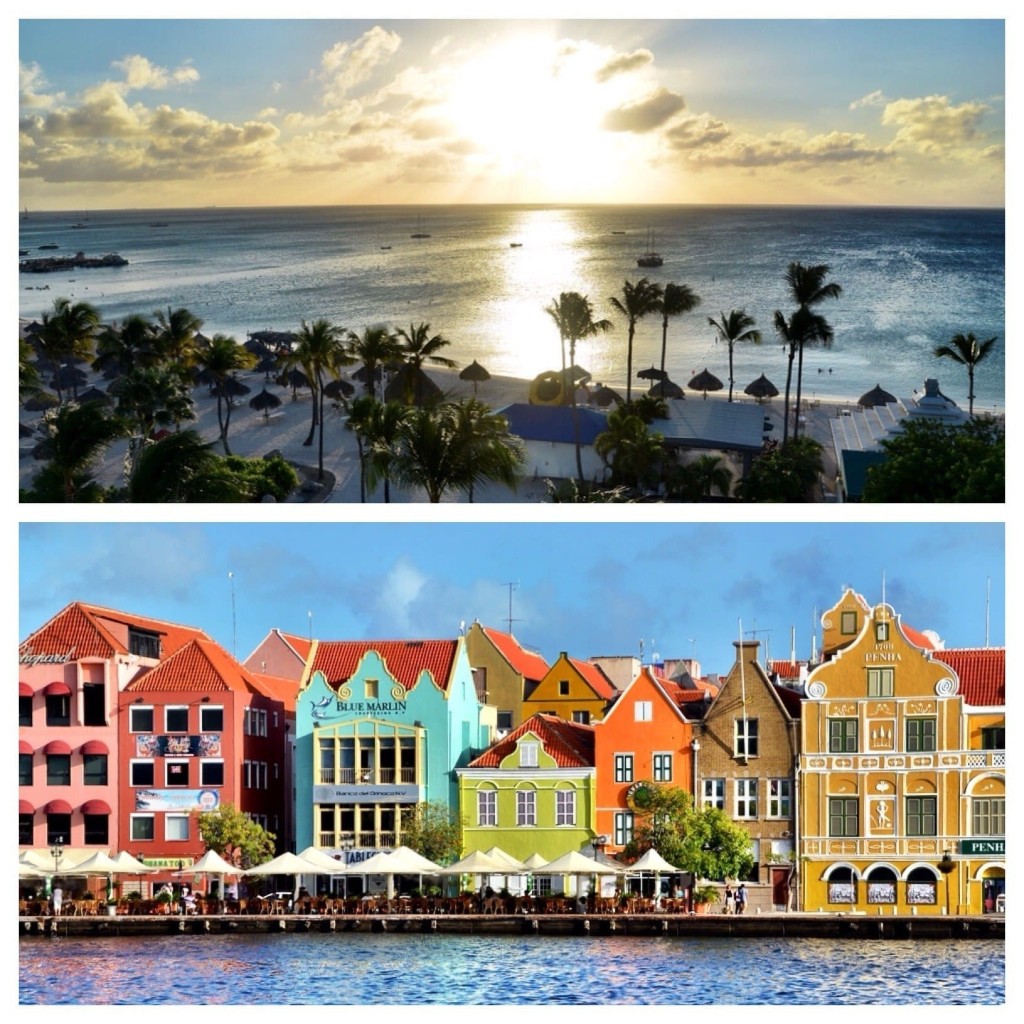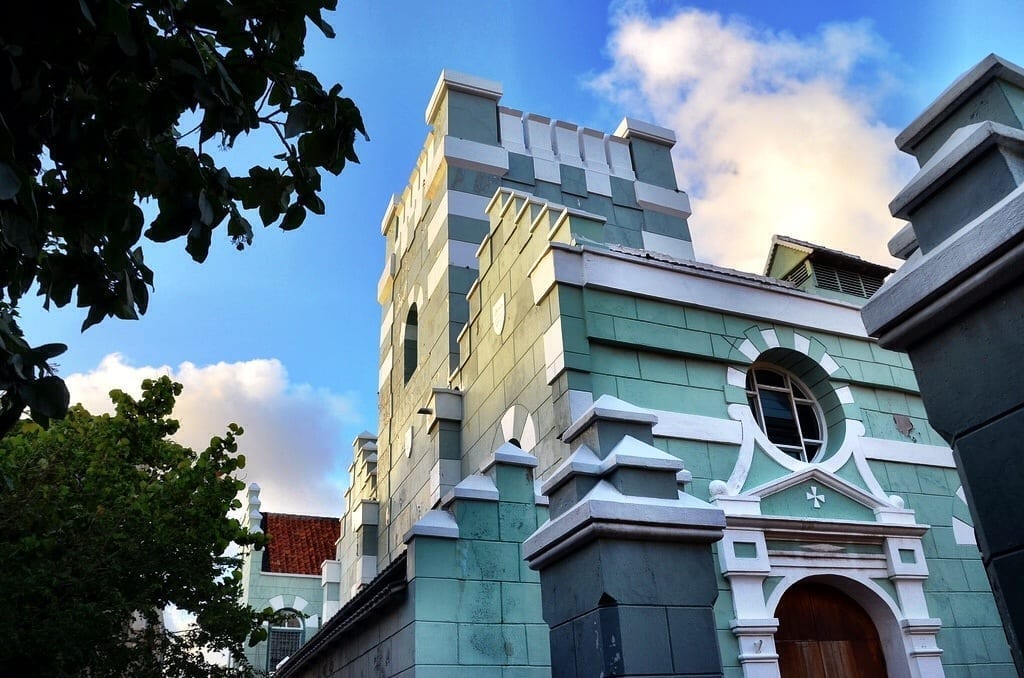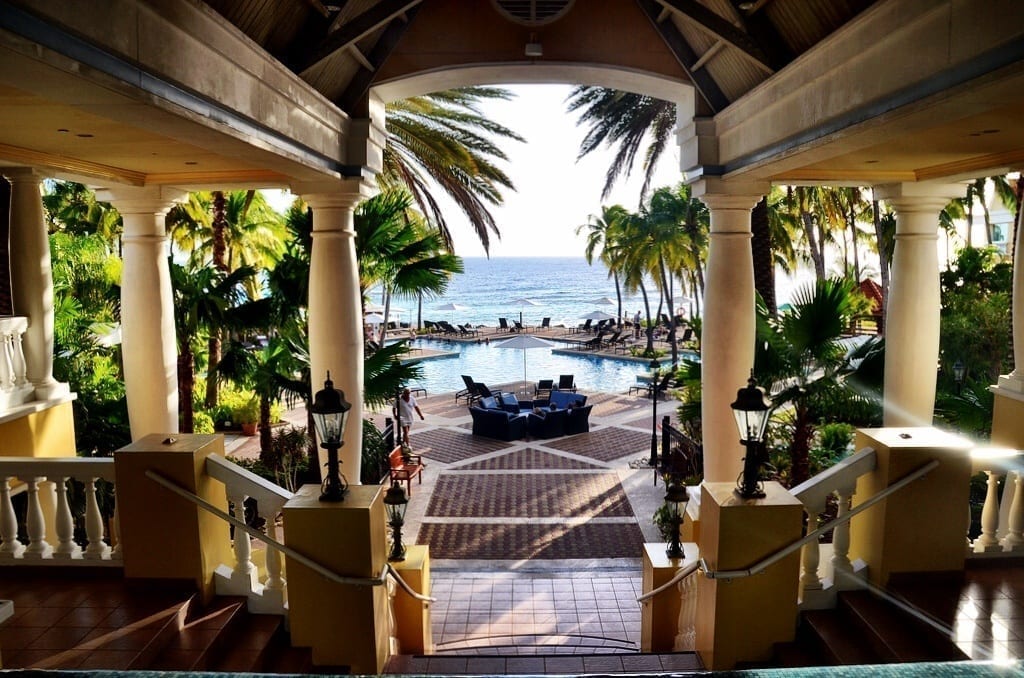
A few months ago I found myself in the Caribbean working on a project with Marriott Resorts of Mexico and the Caribbean. The goal was to highlight their properties and islands and show why they’re great places to visit. Two of the islands though intrigued me especially, and given their similar histories and location I thought it would be fun to compare and contrast them and show why someone would pick one destination over the other.
At first glance Aruba and Curacao seem very similar. They’re both Dutch islands, they are about 75 miles apart from each other off of the coast of Venezuela and they even have most of the same cultural influences. But believe me, the two islands couldn’t be more different. These differences aren’t a bad thing; it’s just that some travelers will prefer one over the other depending on the type of vacation experience they’re looking for.

Curacao
The Dutch Caribbean is a group of constituent countries of the Kingdom of the Netherlands. It’s a confusing legal arrangement, since they’re both independent and part of the Netherlands. Regardless of their official status, these countries still strongly identify with the Netherlands, perhaps none more than Curacao. The Dutch West India Company founded the capital of Willemstad in the 17th century and eventually made the island the center of its Atlantic slave trade; a troubled past that still casts a shadow into the 21st century. Today of course the island depends heavily on tourism, but I was surprised to learn that European tourists were the primary visitors to Curacao. I found that intriguing since Aruba is very close, has a similar history and yet that island depends more on North American tourists. It told me there had to be a reason. Looking at the pros and cons of both islands should shed some light on that.
Pros
It’s hard to compare Caribbean islands because one has to accept the fact that most have beautiful beaches and resorts. They just do, so I think that has to be taken out of the equation. One then has to look for other features that make the islands different or interesting. For Curacao, the greatest pro is the capital city of Willemstad. Instead of being ignored or hidden, the city is the focal point of a trip to Curacao, as it should be. This UNESCO World Heritage City is a beautifully preserved and historic town, famous for its multi-colored Dutch-style buildings along the waterfront. Walking through the town is a great experience, especially if you venture into the less touristy otrabande side.
Cons
Maybe it’s because of the influx of tourists from Europe, but I found the island to be fairly expensive. I don’t just mean the high-end boutiques, but in little ways like simple meals and taxis. I had a lunch in an admittedly touristy part of town that was completely lackluster, and yet incredibly expensive. Walking around town I found some decent looking restaurants, but not many and all were overpriced. Transportation around Curacao isn’t easy either and a cab ride from your hotel or resort to other parts of the island can be very pricey.

Aruba
Like Curacao, Aruba was also first under Spanish and then Dutch administration as part of the Dutch West India Company. Its size and desert-like weather conditions though meant it wasn’t given as much attention as islands like Curacao. Instead, the island existed quietly under the radar for centuries, having neither plantations or gold, until tourism took hold in the 20th century.
Pros
Yes, Aruba has beautiful beaches but it also has a stunning interior that surprises most first-time visitors. Unlike many other Caribbean islands, Aruba is dry and desert-like with more cacti than palm trees. But this unusual ecosystem is what I think makes it different and ultimately a beautiful place to explore. The best activity to see more of this terrain is to rent a 4×4 for the day and take off into the interior and along the rocky north coast of the island. Massive boulders seemingly placed by giants and rocky cliffs make a day away from the beach a fun adventure.
Cons
Although much smaller than Curacao it’s somehow more touristy. I blame my fellow Americans for this odd differentiation. The entire beachfront is covered in wall-to-wall resorts, each offering pretty much the same thing; nice rooms and beautiful beaches. That’s fine and for most people that’s all they want on a trip to the Caribbean. What was really disappointing to me though was the capital Oranjestad. Unlike Willemstad on Curacao, there is little interesting in this city that is instead covered in shops, boutiques and tacky restaurants. Of particular dismay was the multi-level Pizza Hut. Not exactly the escape from reality most people look for.

Conclusion
Like most aspects of travel, the decision as to which of these two islands to visit is entirely subjective and personal. I really enjoyed my time on both islands, but for very different reasons. Curacao appealed to me for its history and the beauty of the historic buildings in Willemstad. Even though the Curacao Marriott Beach Resort has stunning views and great beaches, I didn’t really spend much time on them. Instead I was much more interested in the island as a whole. Aruba was essentially the opposite experience for me. While a guest of the Marriott Aruba Resort, it was all about the surf and sand and while I did manage to get out and see more of the island, I much preferred to stay at the resort relaxing. So it seems to me that the islands appeal to two different types of travelers, which also may be why one is more popular with Europeans and the other Americans. Neither option is bad, choosing one over the other does not make you a good or bad tourist, it’s just a matter of personal preference.
I’m positive though that whichever one you choose you will enjoy because at the end of the day you will be on an island in the Caribbean, and how bad could that possibly be?
Which island do you think you’d enjoy most?
I was in the Caribbean on a project with Marriott Hotels and Resorts of Mexico and the Caribbean for which I was compensated for my time, but as always all thoughts and opinions are entirely my own.
